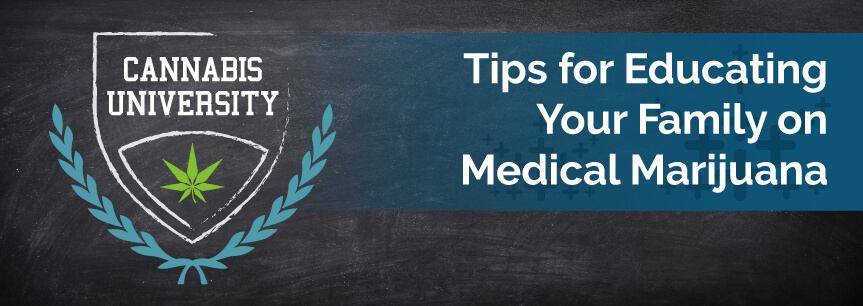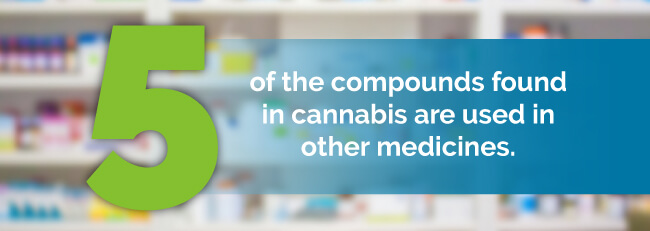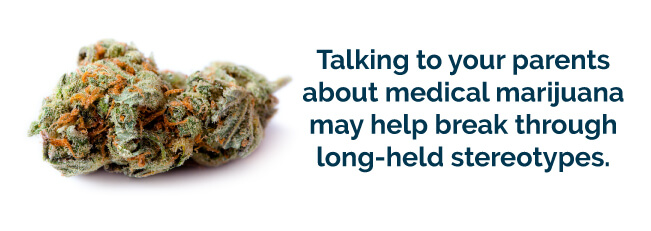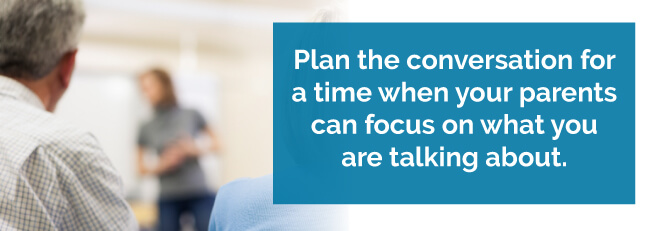
Marijuana is a political topic in recent years that has some emotion attached to it for some people. People who use marijuana and find it harmless feel discriminated against by laws that ban the substance, while alcohol is openly consumed. Many people believe alcohol is a far more dangerous substance than marijuana, but the laws don’t treat it that way.
Additionally, recent medical discoveries concerning marijuana are promising for the treatment and cure of disease. These medical findings seem to be at direct odds with the old stereotype of marijuana users being potheads and stoners. The moral argument against marijuana clashes with the medical argument, and you are caught in the middle.
If you have a medical need for marijuana, there are now legal avenues for you to fill that need. It may take some time, however, for the people around you to change their opinion of the substance, and by extension, you for using it.
If you have any previous experience with marijuana, it probably did not include your family. You were probably younger and hid your marijuana usage from your parents. If you continued recreational marijuana use into adulthood, your instinct was probably to hide it from your kids, too.

First heavily taxed in 1937 and then banned in the 1970s, recreational use of marijuana may be popular in some circles, but it carries a social stigma. For many, it was part of an adolescent rebellious period, and to others it represents what went wrong with our youth in this country. Marijuana usage is still prohibited by federal law.
Medical marijuana is different, though. Legalized in some states already, medical marijuana is not about getting high or partying. It is not something to hide from your family. If you qualify for medical marijuana treatment, you are probably happy to have this option.
Medical marijuana is used to treat conditions like these:
These are rather serious conditions with symptoms that resist treatment by other means. Medical marijuana is a breakthrough for people suffering with these and other similar conditions. Still, you may have to get your family past the stigma of marijuana because all they know at this point are the negatives.

The key to talking to your family about medical marijuana is to actually talk about it. Starting the conversation might be the hardest part. You don’t have to hide medical marijuana, though, and you shouldn’t feel embarrassed by it, either. Medical marijuana represents an opportunity for you to relieve your discomfort, and your family will be glad there is something that can help you.
When you first became aware of the benefits of medical marijuana, you might have been surprised. After hearing for years about the dangers of smoking weed, you never expected anyone to recommend it, especially not a doctor. Whether your doctor told you what it could do for you or you did your own research on the benefits of medical marijuana, you are more enlightened now.
Your family needs to learn more about it, too, so they can embrace the benefits. You can help educate them, so they don’t think of it as a license to party. Let your family know that you took the time to learn about medical marijuana before deciding to try it and share some of your research with them.

You may want to share some of these facts with your family:

Having a factual discussion of medical marijuana with your family and friends can change any preconceived views they have about the substance. When they learn what marijuana really is and how it can help you and others with the same symptoms, they should be less inclined to judge your actions.
The conversations you have with your family and friends about medical marijuana should be about you, also. The legality of medical marijuana may be a political issue, but in this context it is not. You do not need them to change their political views or compromise what they stand for. You need them to understand your health situation and that using medical marijuana makes it better.
People can get pretty dug in with their political or moral views. When you appear to challenge those, they get defensive and don’t listen. You don’t want to set up that type of debate. You just want to tell your friends and family that you are trying something new, at your doctor’s recommendation, and you expect it to help you.
When you are feeling judged about your use of medical marijuana, turn the conversation to a personal level. Talk with your family about the symptoms you experience, the methods you have tried to relieve those symptoms and the results you get, or hope to get, from medical marijuana. The people who love you will support your decision to use medical marijuana when they understand what it means to you, personally.
Even if you were once a casual marijuana user, medical marijuana is different. Talk to your friends and family about the difference. Discussing things like dosage and potency may help them see that you have a serious medicinal need. Explain to them you don’t get medical marijuana from the dealer on the corner or grow it in your basement. It is just like any other prescription you get from a doctor.
Medical marijuana is an important idea to share with your family. When they see the results you get with it, they may have a use for medical marijuana as well. Sharing your experience will help anyone who wants to apply for their own medical marijuana card navigate the process.
Kids are curious about everything that goes on around them. Even when you think you are hiding something from them, they know about it. Kids will take what they know and fill in the blanks, putting their own spin on it rather than asking for more information. Just ask a young child how a person gets pregnant, and you will see the results of partial information and a child’s imagination.
The danger, then, is to not talk about your medical marijuana. Your kids will know you are hiding something. They may even understand that you are using marijuana. They are going to come up with their own ideas about what that means, though, and how it affects them. They will probably discuss their erroneous ideas with friends and neighbors, too, as children tend to do.

It is better to talk to your kids about medical marijuana than to let them come to their own conclusions about it. Here are some tips for talking to your kids about medical marijuana:
Once your kids understand the facts about medical marijuana and why you use it, having it around should pose no risk to them. Keep your marijuana in a secured location, and never leave it out. This will cut down on the risk that someone else gets ahold of it.
When you are honest and open with your kids about medical marijuana, they are less likely to get into trouble. You should not have to worry that your use of marijuana for medical purposes will cause your kids to become potheads. Kids who are educated about marijuana will be less likely to want to experiment with it out of curiosity.
If you are open and honest with your kids, they will come to you with their questions. You will know when they are curious about using marijuana and if they are being pressured or exposed to it at school. That is a completely different conversation, but it’s one that might be easier once you have already discussed the topic of marijuana in the context of your medical usage.
Talking to your parents about medical marijuana may mean breaking through some long-held stereotypes. Your parents may see marijuana as a dangerous drug or as the root of all evil in teenagers. Some people think marijuana is the reason for irresponsibility in young adults, or that people who smoke pot are throwing their lives away. Many people lump cannabis in with other drugs that are much more dangerous and addictive. This perspective is usually a product of inexperience and insufficient knowledge.

Talking to your parents about medical marijuana might mean educating them about drugs in general as well as explaining your need for medical marijuana. Here are some tips for having the medical marijuana conversation with your parents:



For more information about medical marijuana, search for a medical marijuana doctor or dispensary near you today. We provide a comprehensive listing of doctors and dispensaries across the country that deal with medical marijuana and can help you get the treatment you need.
No Information on MarijuanaDoctors.Com should be used to diagnose, treat, prevent or cure any disease or condition. You can view our Full Disclaimer here.